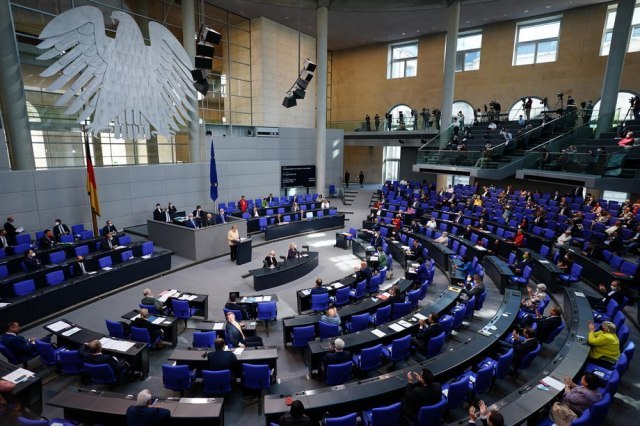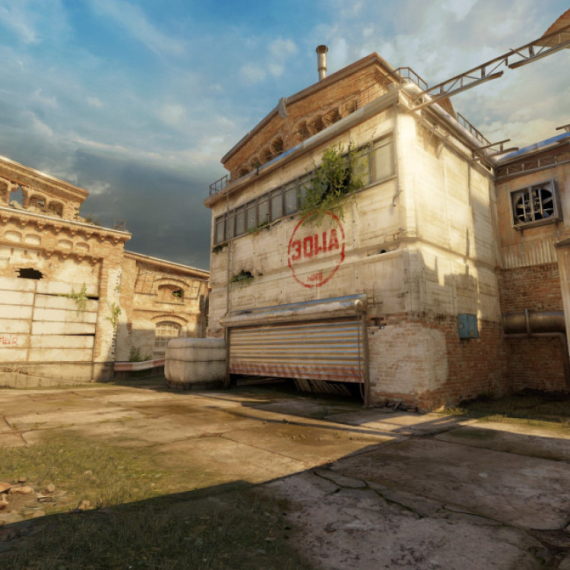Just dare mention Western Balkans - the "slogan" of German parties
Before elections, German parties publish programs on over a hundred pages. However, there are only a few lines about Serbia and the region that do not promise.
Thursday, 09.09.2021.
21:49

Just dare mention Western Balkans - the "slogan" of German parties
Chancellor Angela Merkel's last trip abroad should take her to the Balkans. The media mention the meeting with the leaders of the Western Balkans in Tirana (September 14), but it is unofficially heard that the Chancellor could visit Belgrade beforehand. There is no official confirmation in Berlin yet.If so, it would be a strong signal that Europe's most powerful politician's sixteen-year term ends with a visit to a region long promised to join the European Union, but still in the waiting room.
Despite big words about the "European perspective", which are still uttered on diplomatic occasions, the programs of the German parties before the elections on September 26 speak very modestly and twistedly about that "perspective". In fact, no party explicitly states that it will advocate for full membership of Serbia and its neighbors in the EU, the DW analysis shows.
"The Western Balkans is not a priority for German foreign policy, not even for the EU. This has been clear for years. The prevailing view in Berlin for many years is that stability is a regional priority, whatever that means", Sarajevo political scientist Jasmin Mujanovic said.
What the programs contain?
DW analyzed the programs of six leading German parties, compiled for the upcoming parliamentary elections (September 26). These are rather extensive documents, usually from one hundred to two hundred pages, where each party states what policy it would pursue in various fields if it gains the trust of the citizens.According to opinion polls, the Social Democrats, the leading force from which ranks, as things stand at the moment, the next chancellor will be chosen, dedicates these few sentences to the region in the program: "Europe's neighborhood in the south and east is marked by crises and growing influence of other countries. The EU must approach these challenges with a new concept of the European Neighborhood Policy. We will integrate the countries of the Western Balkans".
It is not specified what the "new concept" of the neighborhood policy is, nor what the "integration" of Serbia and the neighborhood means.
Outgoing Chancellor Angela Merkel's Christian Democrats state: "We are committed to further intensifying the Western Balkans' accession to the EU, because the security and stability of the immediate neighborhood are of great interest. However, the EU's internal cohesion must not be weakened by the reception of new members. Candidate countries must meet all accession criteria".
A similar formulation - first internal strengthening and reforms of the EU, followed by a potential enlargement - has been used by French President Emmanuel Macron in recent years, for which he is occasionally criticized from Berlin. But now it is as if the Christian Democrats also adhere to that rhetoric.
Greens and AfD most specific
The Green Party advocates more responsibility in the EU's neighborhood and is the only one to mention the possibility of enlargement at all. "EU enlargement policy is a success story that we want to continue. That is why we are in favor of concrete progress in the European integration of the Western Balkan countries."The Greens list reforms in terms of democracy, the rule of law, the fight against corruption, the protection of minorities (especially Roma), reconciliation and the prosecution of war crimes.
Among the concrete steps they would work on, but without details on how they intend to implement it, are visa liberalization for Kosovo, progress in the Belgrade - Pristina dialogue, the start of EU negotiations with North Macedonia and Albania, creation of civil society in Bosnia-Herzegovina... Greens also reject marking new state borders according to ethnic principles.
The right-wing Alternative for Germany is the only one that clearly states that it is against EU enlargement: "The Western Balkans is an important part of Europe and is increasingly becoming an interesting sphere of foreign powers. For the sake of stabilization, we advocate a privileged partnership with the countries of the region. Security cooperation with them must be deepened in view of migration trends. However, we strictly reject EU enlargement".
German Liberals and the Left do not mention the Western Balkans in their programs.
Expansion deeply frozen
For the region, therefore, "integration", "intensification of accession to the EU", "concrete progress" and "privileged partnership" are envisaged, respectively. These are "formulaic phrases", that is, already domesticated and routine formulations, explains Aleksandra Salamurović, a linguist who analyzes the language of politics and the media at the University of Jena."The discourse of EU enlargement is not developing conceptually or linguistically, and therefore nothing is changing in terms of concrete political action," says Salamurović.
"Quantitative linguistic analysis of the programs of the most important parties shows that the Western Balkans are mentioned very rarely, while other geopolitical regions are of much greater importance, for example the so-called global South."
According to the latest polls, it seems that the new ruling majority could be made up of the Social Democrats and the Greens, as in the time of Gerhard Schroeder and Joska Fischer. But this time they would need a third partner, and it is uncertain whether it could be the Liberals or the Left.
Political scientist Jasmin Mujanovic adds that politicians in the region realized long ago that EU enlargement had stopped, so they turned to "new sponsors" such as Russia, China and Turkey, and some old projects in a new guise, as he sees the so-called "Serbian world", adds Mujanovic.
Maybe it would be better for Bosnia-Herzegovina, Montenegro and Kosovo, if the Greens prevail in the Ministry of Foreign Affairs, because he refers to the geopolitical positions of the Social Democrats as "almost Russophile".
However, the interlocutors agree - whatever political party comes to power, it will not bring any significant changes in German policy towards the Western Balkans.



















































Komentari 1
Pogledaj komentare